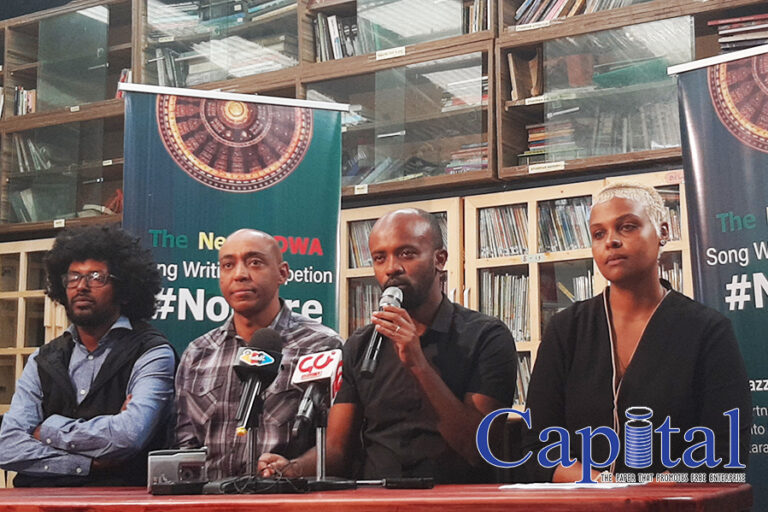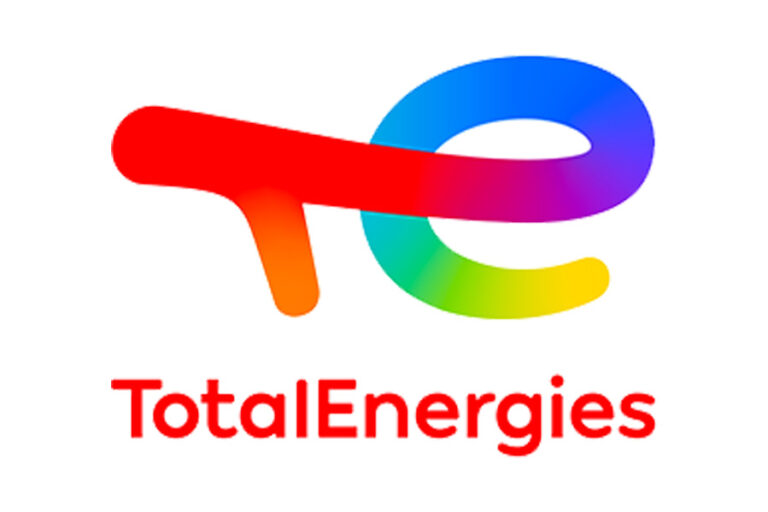Jazzamba School of Music in partnership with Jubilee Events & Entertainment, Fendika Cultural Center and Laphto Mall, announced the launch of the New ADWA Song Writing Competition.
The organizers said that this competition is an opportunity for young musicians and songwriters to build and grow their musical passion, which falls in line with the vision of Jazzamba and to nurture and inspire the next generation of musicians and to guide the development of Ethiopian music into the future.
“At various points in the past, Western artists have produced events in Africa; now it is our turn to take the lead.” says one Jazzamba board member.
This initiative comes at a time when the #NoMore movement is bringing people together to support Ethiopia. This competition adds to this movement by providing up-and-coming musicians the opportunity to compose an original song that reminds us of how the Battle of Adwa represents freedom for Ethiopia and Africa and supports peace and unity, love and harmony.
The organizers also said that they are encouraging the youth to collaborate together and compose a song; an original musical composition and original lyrics. “This is a huge opportunity for Ethiopian youth around the world to work on their teamwork skills, writing and storytelling,” a statement from the organizers read.
The winning song will be judged by prominent musicians and singers. “It will express feelings of peace and unity, love and harmony and provide an opportunity to take pride and ownership in being Ethiopian/African. This song will be sung and produced by some of the biggest names in the Ethiopian music industry and released to the public,” the statement further reads.
Jazzamba was founded in 2008 by some of the top musicians in the Ethiopian music industry at that time. It has graduated nearly 300 students between 2008 and 2018. Jazzamba operated the Jazzamba lounge until it was closed in 2015 due to a fire at its location in the Taitu Hotel. Since then Jazzamba has re-registered as a local NGO and has been rebranding with the intent to re-open to music students in 2022.
The new Adwa song writing competition
The Opportunities in the Transport Sector in Ethiopia
By Yoseph Getachew
With a population of 110 million people, Ethiopia has one of the most underdeveloped transport and logistic sectors in the world, according to the World Bank’s 2016 Logistics Performance Index (LPI) which ranked the country 126 out of 160. The sector faces many challenges in Ethiopia, including a historically very limited private sector involvement (foreign and local) and a lack of integration between government entities, especially the Ministry of Revenue and Ethiopian Shipping and Logistics Services Enterprise (ESLSE). Nevertheless, the sector has significant growth potential by virtue of expected growth in the wider private sector economy (from a low base), expected increase in demand from production sectors for professionalized logistics services, a growing middle class and continuing GDP growth.
Sector Growth Opportunities
Even though the sector has its challenges, it has significant growth opportunities driven by the following factors:
Liberation of the logistics sector The government initiative to allow foreign investors to participate in the sector is expected to create growth as foreign investors eye entry into the country. There are big international players ready to come to Ethiopia including Dubai ports giant, DP World, which is taking the lead after signing an MOU with the Ministry of Transport to invest $1B in an effort to create a trade and logistic corridor from Ethiopia to Berbera in Somaliland.
Expected growth of the agriculture sector The Ethiopian government is emphasizing the potential of the agriculture sector. Since 2019, 121,356 hectares of irrigation schemes have been developed in order to increase productivity and production. Similarly, different initiatives are being taken by the government to create growth opportunities for the transport and logistics sector as products will need to be transported from farmers to the market more efficiently.
Expected growth of the industrial sector Despite the related regional disputes, the country is finalizing the Great Ethiopian Renaissance Dam (GERD) which is expected to help resolve the power shortage in Ethiopia and support industrial growth. In conjunction with this, Ethiopia has also built 13 industrial parks throughout the country which require a modern logistics route to move raw materials and ship end products to customers.
The African Continental Free Trade Agreement (AfCFTA) In time, the agreement will open doors to the regional market as African countries move to open their borders for more trade within the continent.
A growing middle income, urbanization and food (inefficiency, price inflation, logistics chain) There is a large potential in the agricultural goods transport sector since the country is experiencing huge food inflation (22.3% in April 2021) and urban population growth of 4.78%. There is a growing need for efficient logistics services as the market in cities such as Addis struggles to get products efficiently, which could be one big step to solve part of the food inflation challenge the country struggles with. To provide some perspective, 100 kg. of teff is sold for an average price of ETB 5K in Addis Ababa and the same quality product can be bought for ETB 4.2K outside Addis from farmers directly.
Current State
Currently, the sector is dominated by the government with only a handful of private companies in freight forwarding and the logistics space. The sector lacks smooth integration (between government entities and between government entities and the private sector) and expertise which is causing significant inefficiency. For instance: it takes 40 days to clear inbound goods from seaports in Ethiopia, whereas middle-income countries clear within 3 days on average; and, Ethiopia’s total logistics cost compared to GDP stood at 26% but the middle-income average is between 10 to 15%, showing the country still has a long way to go.
The inefficiency in this sector is also affecting the competitiveness of other critical sectors such as exports. For instance, to transport a P20-foot container of garments from Ethiopia to Germany costs 247% more than from Vietnam and 72% more than from Bangladesh. Even when we compare Ethiopia with neighboring countries such as Uganda and Rwanda who are also landlocked, we see that Ethiopia is behind. In 2016, Ethiopia’s LPI was 2.38 and ranked 126 among 160 countries worldwide, whereas Uganda and Rwanda had 2.58 and 2.97 LPI scores and were ranked 58 and 62, respectively.
Government Plan and Regulatory Framework
Through the Homegrown Economic Reform agenda, the government aims to transform Ethiopia into an industrialized, lower-middle-income country by 2030. The private sector has a paramount role in making this a reality. The government has made significant changes specific to the transport and logistics sector under the new investment laws, which allows foreign investors to participate in packaging, forwarding and shipping agency services (which was previously reserved for domestic investors), railway transport, cable transport, cold-chain transport and freight transport with a capacity of more than 25 tons. But some areas are still closed for foreign investors. For example, per the new investment laws, international air transport service is only allowed in partnership with the government. In addition, foreign investors can only invest in domestic air transport service, cross country public transport service with a seating capacity of more than 45 passengers, and urban mass transit service in partnership with domestic investors without holding majority membership interest.
In addition to the improvements to the investment law, the government plans to mobilize ETB 3T ($73B) of investments into the sector over the next ten years in partnership with the private sector. This coupled with the improvements in the investment law will be integral to the growth of the sector for the next decade.
The Future of Logistics in Ethiopia
The sector is marked with challenges and lags behind other countries. But the government is determined (and has little choice) to enable the private sector to address the county’s rapidly changing demographic and logistical demands which is why the sector’s growth potential cannot be ignored.
You can reach the writer via jcgetachew@gmail.com
Electric cars to lead out elite races as part of ‘Go Green’ campaign on TotalEnergies Great Ethiopian Run
The men’s and women’s elite races at the 2021 TotalEnergies Great Ethiopian Run International 10km taking place today Sunday 23rd January 2022 will be led out by electric cars supplied by Green Technology Ethiopia, one of the new importers of electric cars into Ethiopia.
The use of electric vehicles, the first time such vehicles have been used at the race, is part of the ‘Go Green’ initiative undertaken by Great Ethiopian Run at its races throughout 2022 following its commitment to raise awareness about environmental issues.
“Poo to the Loo” is another such campaign being promoted by race sponsor UNICEF. Speaking about the problem of poor hygiene practices in Ethiopia, Gianfranco Rotigliano, UNICEF Representative in Ethiopia, said: “approximately 22 million people, equivalent to roughly 1 in 5 of the estimated 110 million population, practice open defecation in Ethiopia, with devastating consequences on public health especially for children.”
Through this campaign UNICEF is calling on everyone to become agents of change to end open defection so that children can live healthier lives, noting that diarrhea is a major cause of deaths among children under five in Ethiopia.
Great Ethiopian Run has also partnered with UNICEF and other race sponsors including TotalEnergies, Sofi Malt, Hyatt Regency and Arki Water to arrange a street cleaning programme which will take place on the eve of the race in three locations along the course route. The cleaning will be done by environmental partner PETCO with assistance from representatives from each of the sponsors.
“Our profile as one of the biggest events in Ethiopia also comes with responsibilities,” explained Marketing Director Hilina Negussie. “We hope that our practices and our example will inspire others to follow our lead.”
Kenenisa Bekele leads Boston Marathon elite field
Organizers of the Boston Marathon have revealed their fastest ever men’s field for the 126th edition of the World Athletics Platinum Elite Label road race on 18 April.
It features 12 men with lifetime bests faster than 2:06, led by three-time Olympic champion Kenenisa Bekele of Ethiopia, the second fastest marathon runner in history with a best of 2:01:41.
“I recognise the tradition of the Boston Marathon and look forward to racing in April,” said Bekele. “For many years Ethiopia has had a strong tradition in Boston, and I am excited to join that legacy. I have long looked forward to racing the Boston Marathon.”
Seven of the past eight winners will also return to Boston, including 2021 champion Benson Kipruto of Kenya. Lawrence Cherono (2019), Yuki Kawauchi (2018), Geoffrey Kirui (2017), Lemi Berhanu (2016), and Lelisa Desisa (2015 and 2013) are the other six former winners.
“Being back in Boston as a champion is very exciting, but at the same time I feel the pressure and the responsibility to defend my title,” said Kipruto. “I really admire those athletes that managed to be multiple champions in big races. I really want to do my best to be one of them and I really hope to make my name among those Boston champions that people will remember for a long time.”
Other strong contenders include Titus Ekiru, the fastest marathon runner in the world last year having run 2:02:57 in Milan, 2020 world leader Evans Chebet, New York City Marathon winner Albert Korir, and three-time world half marathon champion Geoffrey Kamworor.






